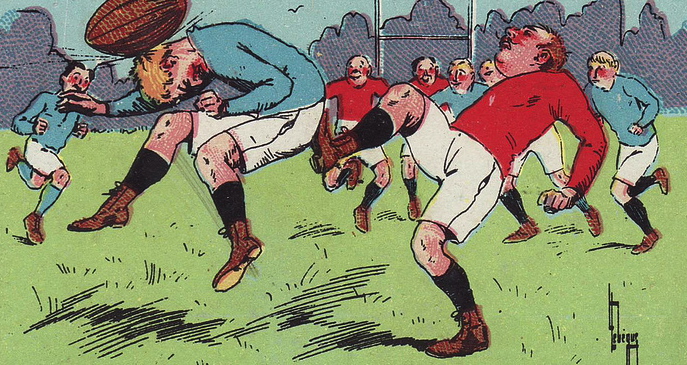London School of Economics and Political Science’s (LSE’s) men’s rugby club was recently disbanded due to repeated incidents of harmful behaviour characteristic of university lad culture – the kind often excused as humorous, ‘harmless banter’. The trigger was the distribution of leaflets containing misogynistic material, although this is not an isolated incident for the club. They were found previously to have held Nazi-themed drinking games which led to a Jewish student having their nose broken, as well as ‘blacking up’ and dressing as Guantanamo Bay prisoners before imitating Islamic prayers while Muslim students left Friday worship; they have also been known to interrogate members about their sexuality with a homophobic emphasis. Calling this kind of behaviour – which exists all over the country, not just at LSE – ‘harmless banter’ is to use the term as a cloak for misogyny, racism, homophobia, transphobia and other discrimination, as well as just general malicious bullying and bad humour.
Some of those who condone and participate in lad culture and ‘banter’ may seek to justify it not just as harmless fun but also as a way of reclaiming some kind of space for men. This is what ‘laddism’ in the nineties was especially about – a backlash against the ‘New Man’ and an attempt to return to more ‘traditional’ masculine values for those who allegedly felt disempowered by the rising acceptance of feminist ideas and the gradual shift of gendered power structures. Objectively, it is not true that women had surpassed men in terms of power and status in the nineties, nor is this true now, but the attitude exists nonetheless. The idea, then, that men might need to reclaim a space for themselves (where they do nothing particularly constructive but misbehave in a crude and puerile fashion) is unnecessary. Minorities may need to reclaim spaces in order to combat discrimination and oppressive structures and create an environment for themselves to thrive and work towards equality without fear of harm. Do the people who most commonly participate in lad culture and ‘banter’ really need this when the vast majority involved are privileged, white, heterosexual men? Unlikely.
Nobody wants to stop students from having a laugh – ideally though, it should happen without having to humiliate others. To suggest this kind of ‘banter’ might be a structural problem within UK universities is to suggest that university institutions turn a blind eye to it. This is not the case – campaigns run by student unions and the National Union of Students have arisen to try and deal with the harmful effects of lad culture, particularly with regards to sexual harassment. Nevertheless, more needs to be done.
Many of those participating in ‘lad culture’ will be the next privileged elite, and if their intellectual culture involves making sexual assault and discrimination acceptable as just ‘harmless banter’ and telling others to ‘lighten up’ when they get called out on their behaviour, then it will be very difficult for British society to move on from this. Most of the time, ‘banter’ isn’t even funny in an objective sense, never mind questions of taste or decency. Perhaps campaigns like Oxford’s ‘Good Lad’ need to run workshops not just on consent and ‘positive masculinity’ but also on how to construct a good joke.

